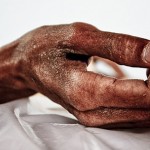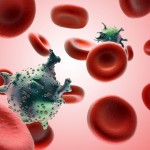Originally posted 2013-12-01 10:25:13.

There is an Islamic teaching in the Qur’an discouraging adultery, which can be a predisposing factor for HIV transmission
With worldwide concern over HIV/AIDS with global campaigns dedicated to raising awareness about it, and with a growing number of people falling victim to the pandemic, Islam has a critical say in the matter.
So, the operational definition of the Islamic approach to HIV/AIDS includes the following:
1- Believing in Allah and Prophet Muhammad
This is the first pillar of Islam indicating that an individual recognizes that there is an invisible God Who has power over all creation, Who is the Most Gracious and Most Merciful and Who has given guidance to mankind on how to live on this earth and in the Hereafter.
This guidance includes Islamic teachings that promote HIV prevention, treatment, care and support, stigma reduction, and life skills utilization. Some of the verses in the Qur’an which support this include the following:
Certainly your Lord is Allah, who created the heavens and the earth in six days and He established Himself on the throne of authority regulating and governing all things. No intercessor can plead with Him except after His leave has been obtained. This is Allah your Lord; therefore, serve Him. Will you not receive this reminder? (Yunus 10:3)
2- Acquiring scientific knowledge about HIV/AIDS
Eliminating or reducing risk of infection requires learning about and understanding the scientific facts about HIV prevention and risk avoidance, and about treatment, care and support of people living with HIV/AIDS (PLWHA).
Allah’s guidance to believers is to read and learn in order to acquire knowledge and education:
Read! In the Name of your Lord who has created all that exists. He has created man from a clot. Read! And your Lord is the most generous who has taught by the pen. He has taught man that which he knew not. (Al-`Alaq 96:1-5)
Also, Anas ibn Malik relates from the Prophet (peace be upon him) when he addressed the issue of knowledge in the hadith where he said: “Seeking knowledge is compulsory upon every Muslim and Muslim.” (Ibn Majah)
3- Making use of relevant Islamic teachings and practices
For example, there is an Islamic teaching in the Qur’an discouraging adultery, which can be a predisposing factor for HIV transmission:
Do not come near to adultery. For it is a shameful deed and an evil, opening the road to other evils. (Al-Israa’ 17:32)
This means that people should not indulge in activities that stimulate their sexual desires, which could then lead them to commit adultery. Adultery is a shameful behaviour that may increase risk of HIV infection. Marriage is encouraged but people must have the means to marry including testing for HIV infection.
4- Forming partnerships with and making use of religious leaders and their administrative structures
The mosque imams are the major pillars in this partnership. They can deliver AIDS education and counseling to grassroots communities. Islamic guidance in the Qur’an encourages people to form partnerships for promoting good behaviors.
Let there arise out of you a band of people inviting to all that is good, enjoining what is right and forbidding what is wrong. They are the ones to attain success. (Aal `Imran 3:104)

The jihad on AIDS is about each person’s individual struggle to control their own personal behaviour for the welfare of themselves and their families
5- Making use of the concept of Jihad An-Nafs (struggle of the soul against temptation) by each individual to combat AIDS
In this context, the jihad on AIDS is about each person’s individual struggle to control their own personal behaviour for the welfare of themselves and their families, as well as each community’s struggle to address the broader context of preventing HIV transmission and to provide care and support to those coping with HIV infection.
All Muslims were advised to participate in this Jihad An-Nafs by Prophet Muhammad (Peace be upon Him). He called it the biggest Jihad because it is not easy for anyone to control the tempting desires of his or her soul.
Implementation of the first four components of the Islamic approach to HIV/AIDS above is likely to have a limited impact at the community level until a significant proportion of individuals participate in this jihad.
It is narrated that some troops came back from an expedition and went to see the Messenger of Allah (peace be upon him). He said: “You have come for the best, from al-jihad al-asghar (the smaller jihad) to al-jihad al-akbar (the greater jihad)”. Someone said: “What is the greater jihad?” The Prophet replied: “The servant’s struggle against his lust”. (Al-Bayhaqi)
The enemy in this Jihad is shaitan (Satan) and Allah provides guidance on how to handle this enemy. Allah says:
If a suggestion from Satan Assail your (mind), seek refuge with Allah: For He hears and knows (all things). Those who fear Allah, When a thought of evil from Satan assaults them, bring Allah to remembrance, when lo! They see (aright)! But their brethren (the evil ones) plunge them deeper into error, and never relax (their efforts). If you bring them not a revelation, they say: “Why have you not got it together”? Say: “I but follow what is revealed to me from my Lord: This is (nothing but) lights from your Lord, and guidance, and mercy, for any who have faith.” When the Qur’an is read, listen to it with attention, and hold your peace: That you may receive Mercy. And do you (O reader!) Bring your Lord to remembrance in your (very) soul, with humility and remember without loudness in words, in the mornings and evenings; and be not you of those who are unheedful. Those who are near to your Lord disdain not to worship Him: They glorify Him and prostrate before Him. (Al-A`araf 7:200-206)
_________________________
The article is an excerpt from the paper: “The Islamic Approach to HIV/AIDs: Enhancing the Community Response”. It was derived from discussions at the International Muslim Leaders’ Consultation on HIV/AIDS, Addis Ababa, Ethiopia, 23–27 July 2007, organized by the Islamic Medical Association of Uganda in conjunction with the Ethiopian Islamic Affairs Supreme Council, sponsored by USAID Health Policy Initiative.
 Arabic
Arabic English
English Spanish
Spanish Russian
Russian Romanian
Romanian Hindi
Hindi Tagalog
Tagalog Bengali
Bengali Sinhalese
Sinhalese Nepali
Nepali

